Staff: immigration procedures, healthcare, stay, transportation
ADiSS - Welcome Unit
Ca’ Foscari, Dorsoduro 3246, 30123 Venezia
internationalstaff@unive.it
Tel. 041 234 8104
The Welcome Unit supports international staff at Ca’Foscari (Visiting Professors, Visiting Scholar, research assistants, regular professors, etc.) and provides assistance with procedures involving various outside authorities and institutions. These external bodies are responsible for their own procedures and timelines which may be subject to change. As such, it is recommended to complete paperwork and apply for documents well in advance of intended travel dates.
Please note that specific cases may require different procedures or extra steps beyond those outlined below. In such instances the Welcome Unit will strive to clarify correct procedures.
The Welcome Unit is not competent for procedures which are not strictly related to immigration issues and are not reported in this page.
How to prepare for the arrival and stay in Venice and in Italy:
Nulla Osta and visas
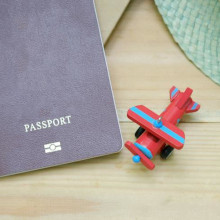
Entry into Italy for visiting scholars, research assistants and other international researchers
Recipients:
- visiting scholars;
- researchers with temporary contracts (RTDa, RTDb);
- research assistants and Marie Curie grant holders;
- research fellows;
- “Contratto di Collaborazione Coordinata e Collaborativa” (co.co.co) researchers.
Researchers from European Union (or equivalent) countries
Entry visas are not required for researchers arriving from within the European Union or equivalent countries (Switzerland, Norway, Liechtenstein, Iceland).
Researchers from outside the European Union
For stays lasting less than 90 days a research visa may be necessary, depending upon the country of origin.
For stays lasting longer than 90 days a “research nulla osta” is required. This document is issued by the Venice Prefecture and is a necessary prerequisite to a research visa.
As soon as an international researcher is appointed, the competent body at Ca’Foscari (Department, Human Resources Area and/or Research Area) shall inform the International Office - Welcome Unit.
A complete list of documents required for the visa is available online on the website of the Ministry of Foreign Affairs and International Cooperation.
The Welcome Unit will take care of:
- requesting the researcher’s Italian tax code (if the researcher doesn’t already have one);
- submitting the “nulla osta” request through the ministry’s online portal;
- sending the researcher their “nulla osta” once provided by the “Sportello Unico Immigrazione” (SUI) of the Venice Prefecture (the document is also automatically forwarded to the responsible diplomatic/consular authority);
- helping the researcher with the visa process, in case of difficulties in securing an appointment with the responsible diplomatic/consular authority;
- scheduling an appointment with the SUI, as soon as the researcher has provided the Welcome Unit with a scanned copy of their visa and communicated their estimated arrival date in Italy;
- accompanying the researcher, upon arrival in Italy, to the SUI to complete the entry process;
- supporting the researcher through the subsequent request of an Italian residence permit for research purposes.
Issuance of the “nulla osta” and visa can require considerable time on the part of the responsible authorities and, thus, requests should be initiated well in advance of intended travel (at least 4-5 months). Researchers are urged to make travel arrangements and purchase airline tickets only after they have received a valid entry visa.
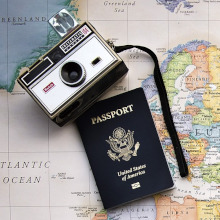
Entry into Italy for visiting professors, regular professors and CEL collaborators
Recipients:
- visiting professors;
- regular professors;
- adjunct professors;
- CEL - Collaboratori ed Esperti Linguistici (expert linguistics collaborators)
Professors and CEL collaborators from European Union (or equivalent) countries
Entry visas are not required for professors arriving from within the European Union or equivalent countries (Switzerland, Norway, Liechtenstein, Iceland).
Professors and CEL collaborators from outside the European Union
A “nulla osta for work purposes” is required for all professors arriving from outside the European Union, regardless of how long they will stay in Italy. This document is issued by the Venice Prefecture and is a prerequisite to obtaining a visa for work purposes (“visto per lavoro subordinato”). As soon as an international professor or CEL collaborator is nominated, the competent body at Ca’Foscari shall notify the International Office - Welcome Unit. A complete list of documents required for a visa is available online on the website of the Ministry of Foreign Affairs and International Cooperation. A “nulla osta” application will require the following documents:
- educational degree translated into Italian;
- one page CV/résumé, dated and signed;
- documentation of employment from the home university
- the responsible authorities may require further documentation depending upon specific circumstances.
For more information regarding translations, legalization and apostilles please refer to the Ministry of Foreign Affairs and International Cooperation website, or visit the website of the appropriate Italian Embassy or Consulate. The Welcome Unit will take care of:
- requesting the professor’s Italian tax code (if they don’t already have one);
- requesting documents from the “Ispettorato del Lavoro” (work inspectorate) required for the “nulla osta” application;
- submitting the “nulla osta” request through the ministry’s online portal;
- sending the professor their “nulla osta” once provided by the “Sportello Unico Immigrazione” (SUI) of the Venice Prefecture (the document is also automatically forwarded to the responsible diplomatic/consular authority);
- helping the professor with the visa process, if they face difficulties in securing an appointment with the responsible diplomatic/consular authority;
- scheduling an appointment with the SUI as soon as the professor has provided the Welcome Unit of the International Office with a scanned copy of their visa and communicated their estimated arrival date in Italy;
- accompanying the professor, upon arrival in Italy, to the SUI to complete the entry process;
- supporting the professor through the subsequent request of an Italian residence permit for work purposes.
Issuance of the “nulla osta” and visa can require considerable time on the part of the responsible authorities and, thus, applications should be initiated well in advance of intended travel (at least 5-6 months). Professors are urged to make travel arrangements and purchase airline tickets only after they have received a valid entry visa.
Traveling with family members

The following information is intended for professors, researchers, and CEL collaborators from countries outside the European Union.
Different pathways are available for the family members of academics to enter and stay in Italy. The Welcome Unit can help obtain visas for family members, though it’s important to remember that all the procedures described herein can require lengthy processes on the part of the various authorities involved.
Accompanying family members
This pathway is for citizens and foreign nationals currently outside Italy, intending to enter the country along with their family members. The applicants (professors/researchers) must first obtain their own entry visa, then the Welcome Unit will request a nulla osta for accompanying family members. The “nulla osta” comes from the Venice Prefecture and is needed to apply for family visas.
Once a professor or researcher has obtained their own visa, it can take an additional 5-6 months to gain family member visas. For this reason it is important to start the original applicant’s visa process well in advance of the family’s intended arrival in Italy.
Minimum requirements:
- official documentation proving family ties;
- signed document (“delega”) allowing Welcome Unit staff to collect the “nulla osta” on behalf of the applican translated and certified by the Italian consular representative serving the applicant’s home country;
- scan copies of family member passports.
The Welcome Unit will take care of:
- submitting “nulla osta for accompanying family members” requests through the ministry’s online portal;
- collecting the “nulla osta” from the “Sportello Unico Immigrazione” (SUI) of the Venice Prefecture (the document is also automatically forwarded to the responsible diplomatic/consular authority);
- helping the professor or researcher and family members with the visa process, in case they face difficulties in securing an appointment with the responsible diplomatic/consular authority;
- scheduling an appointment and accompanying the professor or researcher and family to the SUI, upon their arrival in Italy;
- supporting the family through the residence permit request process.
Family reunion
This pathway is intended for professors and researchers already physically in Italy and already in possession of their Italian stay permit, who wish to apply for entry visas for family members. The applicants must first obtain a “nulla osta for family reunion” from the Venice Prefecture. Then, the family members can request their entry visas to the responsible diplomatic/consular authority.
Be advised: obtaining a residence permit card (permesso di soggiorno) and “nulla osta for family reunion” can take an extremely long time on the part of the respective authorities. As such, this pathway is generally only recommended if no other options are available.
Residence permits for family
The residence permit (permesso di soggiorno) for family members has the same expiration date as that of the initial applicant (professor or researcher). The permit may be renewed along with that of the latter and allows the holder:
- to perform work as an employee or self-employed (given minimum age requirements);
- to enroll in job placement lists;
- to enroll in courses of study or professional training.
Residence permit (Permesso di soggiorno)

Recipients:
- professors
- researchers
From European Union (or equivalent) countries
Professors and researchers arriving from a country that is part of the European Union or equivalent (Switzerland, Norway, Lichtenstein, Iceland) can stay in Italy with a valid identity document from their home country, provided the document allows for travel abroad.
The Welcome Unit is available to help international staff request residence in Italy, if needed.
From outside the European Union
The following categories of academics are required to apply for residence permits:
- researchers intending to stay in Italy for longer than 90 days;
- all professors regardless of length of stay
How to request a residence permit
The Welcome Unit offers help with residence permit applications. The process generally requires the following steps:
- The Welcome Unit makes an appointment with the immigration desk of the Venice Prefecture (Sportello Unico Immigrazione - SUI) within 8 days of the applicant’s arrival in Italy. Welcome Unit staff will accompany the professor or researcher and any eventual family members to the appointment.
- The Welcome Unit will accompany the professor or researcher to the post office to mail in the residence permit request kit. At the post office, the applicant will receive documentation of their submitted application ("Accettazione Assicurata") and will later be summoned to an appointment with the Immigration Office of the Venice Police Station ("Questura di Venezia") for photo identification.
- At the appointment at the Questura, the professor or researcher will be asked to provide:
- four passport-style photographs with white background;
- a copy of the “nulla osta” from the Venice Prefecture;
- a copy of the applicant’s work contract or Welcome Agreement ("Convenzione di Accoglienza");
- a copy of the applicant’s housing rental contract, registered with the tax authority (“Agenzia delle Entrate”);
- a copy of the applicant’s health insurance coverage.
Additionally, the applicant will have their fingerprints collected at the appointment. - When the residence permit card is ready, the applicant will receive an SMS at the Italian phone number they provided at their Prefecture appointment.
- The applicant will be able to collect their residence permit card at the date and time specified in the SMS. If the applicant is unable to collect the card at the time specified, they can find office hours on the Questura website under "Ritiro permessi pronti [ITA]" (collecting cards when ready).
- The professor or researcher should forward a scanned copy of their residence permit card to the Welcome Unit.
To renewing an expiring residence permit is necessary to notify the Welcome Unit in advance as the procedures and timing may differ depending on the single case.
To better serve the international staff of Ca’ Foscari when renewing residence permits, Ca' Foscari University Venice, in cooperation with the local Immigration Office (Questura), have established the "UNI-QUEST" help desk. The UNI-QUEST help desk is located at Ca' Foscari main building (Dorsoduro 3246 ground floor) and it is held on Tuesday morning from 9:30 am to 12:30 pm. Appointments are available by emailing internationalstaff@unive.it.
At the appointment, the Welcome Unit staff, in collaboration with Immigration Office staff of the Immigration Office (Questura), will provide the kit for requesting and renewing the residence permit and will offer support in filling out the forms and verifying the required documentation.
Renewing a residence permit can require considerable time (10/12 months) on the part of the responsible authorities and, thus, requests should be initiated well in advance.
Italian tax code (Codice fiscale)
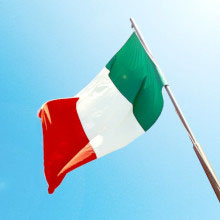
The Italian Codice Fiscale, or Tax code, identifies citizens in their relations with public bodies and administrations. It consists of 16 alphanumeric characters (letters and numbers reproducing your personal data: surname, name, gender, place and date of birth).
Tax codes are issued by the Agenzia delle Entrate (Revenue Office). Citizens entitled to receive healthcare from the National Health Service will receive a Health Insurance card with their Tax Code.
The Welcome Unit will request a digital copy of each international staff member’s Italian tax code and forward it to them prior to their arrival in Italy.
Healthcare
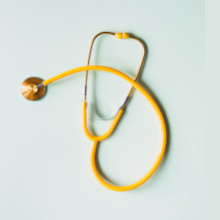
Italy has a public health system called National Health Service (SSN), administered by the regions. It is divided, in the Veneto regions, into ULSS companies (Local Social Health Units).
Consult the information on the ULSS of Venice (ULSS3 [ITA]), Padua (ULSS6 [ITA]) and Treviso (ULSS2 [ITA]).
Healthcare assistance in Venice
For health emergencies, it is possible to visit the emergency rooms of the San Giovanni e Paolo Hospital in Venice (Castello 6777) or the Ospedale dell’Angelo in Mestre (via Paccagnella n 11), bringing the following documents:
- ID or passport;
- European Health Insurance (EHIC)/TEAM card, national health service card (if enrolled in the SSN), or documentation of private insurance valid in Italy.
For health emergencies, it is possible to call the toll-free emergency number 118.
Pharmacies and medicine
Pharmacies generally adhere to normal working hours, though some take turns staying open 24 hours for emergencies.
Those requiring specific treatments should check on medicine availability in Italy and bring with them any prescriptions from their primary care doctor.
Stays lasting less than 90 days - health insurance
Professors and researchers from European Union (or equivalent) countries
Citizens of the European Union and equivalent countries (Iceland, Liechtenstein, Norway, Switzerland) residing in Italy can choose one of the following options:
- Benefit from Italian healthcare services if in possession of a European Health Insurance Card (EHIC), known as a “TEAM” (“Tessera Europea di Assicurazione Malattia”) in Italy. Some non urgent procedures might not be covered or may be available only with a fee.
- Purchase private health insurance valid in Italy;
- Register for the national health service (SSN) upon establishing residence in Venice.
Professors and researchers from countries having bilateral agreements with Italy
Citizens of countries that have entered bilateral agreements with Italy may be able to take advantage of healthcare services as they would in their home country, upon presentation of a certificate, of the extension of the health coverage of the country of origin to Italy.
The following list summarizes countries that have agreements with Italy, followed by the respective form to request coverage:
- Australia – Medicare Card (valid for 6 months after the start of your stay in Italy)
- Brazil - I/B 2 Certificate
- Croatia – 111 Certificate
- Bosnia Herzegovina, Macedonia, Serbia and Montenegro – OBR7 Certificate
- Principality of Monaco – I/MC 8 Certificate
- Republic of San Marino – I/SMAR 8 Certificate
These certificates have to be presented to the Health District before applying for health care. The Health District will produce a specific certificate, that the bearer must show each time they seek healthcare services.
These forms do not cover the costs of private health care, they exclusively cover urgent care in the public health centers that becomes necessary while residing in Italy.
In order to receive scheduled care, applicants must first gain authorization from their home country that will release the appropriate application. As an alternative to all the certificates cited above, it is possible to voluntary subscribe to the Regional Health Service following the procedures described below.
Professors and researchers from outside the European Union
For non-EU citizens present on Italian territory registration to the National Health Service is not permitted (excepting those with “Visiting Professor” title).
they can take advantage of urgent hospital services (first aid, on an outpatient basis, in an ordinary hospitalization or day hospital), for which the relative rates must be paid at the time of discharge. Healthcare rates are determined by the Regions.
A private insurance policy valid in Italy is highly recommended.
Stays lasting longer than 90 days - health insurance
The Welcome Unit ( internationalstaff@unive.it) supports professors and researchers in the procedures for registering with the National Health Insurance.
European and non-European citizens staying in Italy for over 90 days according to their contract, have the possibility to benefit from health insurance in the following ways.
- If the contract includes the payment of the personal income tax (IRPEF) in Italy i.e. associate professor, non-tenured and tenure-track assistant professors (RTDa, RTDb) etc., you are entitled to make a compulsory registration (free of charge) to the National Health Insurance
- If your contract doesn’t include the payment of the personal income tax (IRPEF) in Italy (i.e. research fellowship, Marie Curie Fellows, etc.) you can choose one of the following options:
- voluntary registration (upon payment) to the National Health Insurance
- stipulation of a private health insurance valid in Italy
The Welcome Unit can help professors, researchers, and CEL collaborators enroll in the national health service (SSN).
Housing
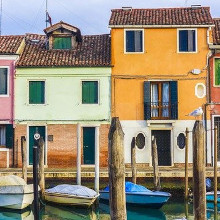
The Ca’ Foscari Housing Office offers help researching housing options and proposes living arrangements including student residences, private apartments, and hotels or providing contact information for local real estate agents.
For more information visit the Housing and canteens page.
Transportation
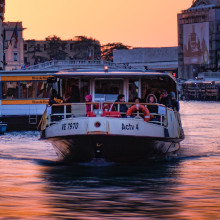
The municipality of Venice is composed by its lagoon area (historic city center, Murano, Burano, Lido and Pellestrina) and mainland area (Mestre, Marghera, Favaro Veneto, and Chirignago-Zelarino) areas. Venice historic city is a well-known car-free area and is connected to the mainland by a 4 km bridge (Ponte della Libertà) which is the only vehicular access to the historical centre of Venice.
Piazzale Roma, Venezia Santa Lucia railway station and Tronchetto island function as transport-interchange hubs between land transport and water transport (waterbuses or "vaporetti").
How to reach Venice:
- From Venice Marco Polo Airport you can reach Venice historic city center by bus (ACTV or ATVO Venezia Express) and airport-waterbus (Alilaguna). You can reach Mestre by bus (ACTV or ATVO Venezia Express).
- From Treviso Canova Airport you can reach Venice lagoon and mainland areas by bus (ATVO Bus Express).
- From other airports or other areas you can reach Venice by train (Venezia Santa Lucia and Venezia-Mestre railway stations).
Getting around Venice
The historic center of Venice is connected to the mainland by various forms of public transportation (bus, tram, and train).
The Venetian urban transport system is run by ACTV, which operates buses, trams, waterbuses and the people-mover shuttle train located within the municipality of Venice and beyond.
In order to use public transport, whether in the lagoon or on the mainland, we recommend getting a Venezia Unica card. Venezia Unica is a city-pass which allows you to access with one simple card to public transport and many other useful services in the municipality of Venice. For more information regarding service tiers and costs visit the AVM site.
The Venezia Unica card is available from the offices of AVM/ACTV including those located in Piazzale Roma. The card is valid for 5 years and it can be loaded with single tickets, 10-ticket carnets or monthly tickets either online, through the official AVM app [ITA], at AVM/ACTV offices, or at authorized retailers (enabled tobacco shops and newsstands).
Upon the activation of waterborne services, the ACTV single or monthly ticket is valid in case of change of travel means (i.e. from bus/tram to waterbus or the opposite). The ticket validation process is mandatory and must be repeated at each change of travel means.
The Venezia Unica tickets and monthly tickets do not include routes outside the municipality of Venice (which require supplementary fees), the railway service between Venice, Marghera and Mestre (which is managed by the companies Trenitalia and Italo), nor the water transport service to and from the Venice Marco Polo Airport (managed by Alilaguna) and Aerobus service (ACTV Aerobus).
Last update: 09/04/2025
